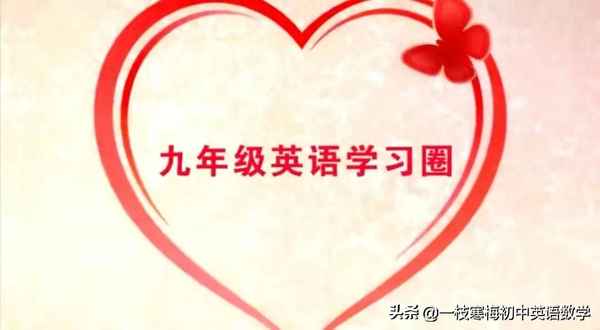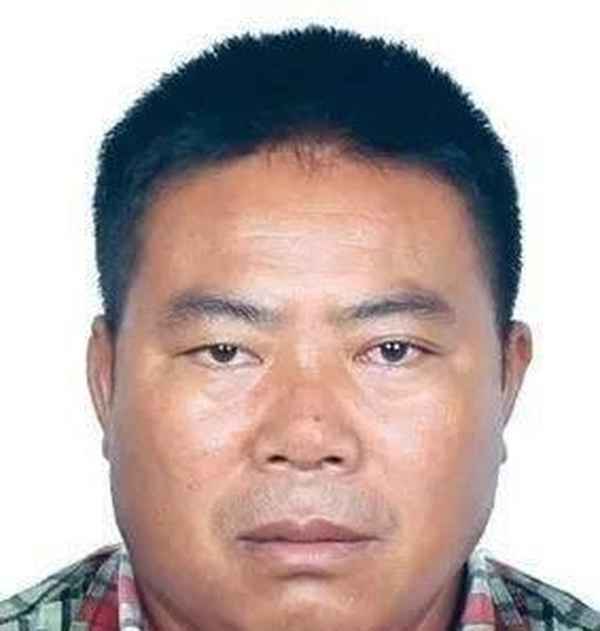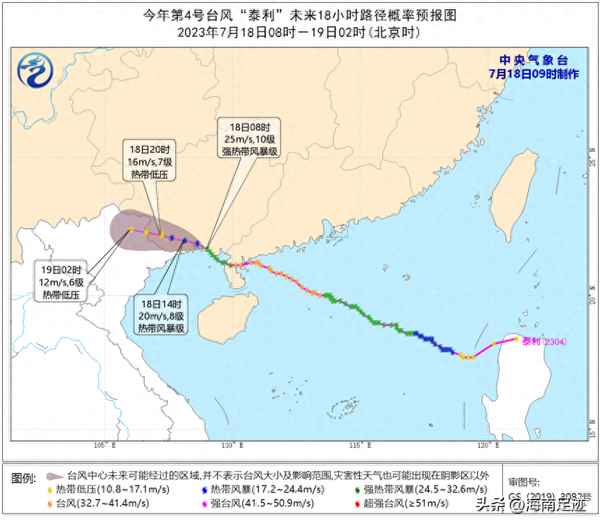不同色系顏色的英文詞匯(夏天的顏色英文詞匯)

Unit1
How can we become good learnears?
【重點(diǎn)短語(yǔ)】
1. good learners 優(yōu)秀的學(xué)習(xí)者
2. work with friends 和朋友一起學(xué)習(xí)
3. study for a test 備考
4.have conversations with 與……交談
5.speaking skills 口語(yǔ)技巧
6.a little 一點(diǎn)兒
7.at first 起初 起先
8.the secret to... .......的秘訣
9.because of 因?yàn)?/span>
10.as well 也
11.look up 查閱;抬頭看
12.so that 以便,為了
13.the meaning of ……的意思
14.make mistakes 犯錯(cuò)誤
15.talk to 交談
16.depend on 依靠 依賴
17.in common 共有的
18.pay attention to 注意 關(guān)注
19. connect …with …把……聯(lián)系
20.for example 例如
21.think about 考慮
22.even if 即使 盡管 縱容
23.look for 尋找
24.worry about 擔(dān)心 擔(dān)憂
25.make word cards 制作單詞卡片
26.ask the teacher for help 向老師求助
27.read aloud 大聲讀
28.spoken English 英語(yǔ)口語(yǔ)
29.give a report 作報(bào)告
30.word by word 一字一字地
31. so……that 如此……以至于
32.fall in love with 愛(ài)上
33.something interesting 有趣的事情
34.take notes 記筆記
35.how often 多久一次
36.a lot of 許多
37.the ability to do sth. 做某事的能力
38.learning habits 學(xué)習(xí)習(xí)慣
39.be interested in 對(duì)……感興趣
40.get bored 感到無(wú)聊
【重點(diǎn)句型】
1.提建議的句子:
①What/ how about +doing sth.? 做…怎么樣?(What/ How about going shopping?)
②Why don't you + do sth.? 你為什么不做…?
如:Why don't you go shopping?
③Why not + do sth. ? 為什么不做…?
如:Why not go shopping?
④Let's + do sth. 讓我們做…吧。
如: Let's go shopping
⑤Shall we/ I + do sth.? 我們/我…好嗎?
如:Shall we/ I go shopping?
2. too…to...... 太…而不能
I'm too tired to say anything.
我太累了,什么都不想說(shuō)。
3. be / get excited about sth. 對(duì)…感興奮
4. end up doing sth : 以......結(jié)束
The party ended up singing.
晚會(huì)以唱歌而結(jié)束。
5. end up with sth. 以…結(jié)束
The party ended up with her singing.
晚會(huì)以她的歌唱而告終。
Unit2
I think that moon cakes are delicious
【重點(diǎn)短語(yǔ)】
1.put on 增加(體重);發(fā)胖
2.care about 關(guān)心; 在乎
3.end up 最終成為, 最后處于
4.not only ……but also……不但……而且……
5.shoot down 射下
6.used to do 過(guò)去常常做……
7.remind sb. of 使某人想起
8.give out 分發(fā) 發(fā)放
9.the water festival 潑水節(jié)
10.the Chinese spring festival 中國(guó)春節(jié)
11.next year 明年
12.sound like 聽(tīng)起來(lái)像
13.each other 互相 彼此
14.in the shape of 以……的形狀
15.on mid-autumn night 在中秋之夜
16.fly up to 飛向
17.lay out 擺開(kāi) 布置
18.come back 回來(lái)
19.as a result 結(jié)果 因此
20.Mother’s day 母親節(jié)
21.more and more popular 越來(lái)越受歡迎
22.think of 想起 ;認(rèn)為 ;思考
23.dress up 裝扮 穿上盛裝
24.the importance of ……的重要性
25.make money 掙錢
26.in need 需要幫助 處于困境中
27.between …and…在……和……之間
28.the dragon boat festival 龍舟節(jié)
29.the lantern festival 元宵節(jié)
30.like best 最喜歡
31.go to …for a vacation 去……度假
32.be similar to 與……相似
33.wash away 沖走 洗掉
34.Mid-autumn festival 中秋節(jié)
35.shoot down 射下
36.call out 大聲呼喊
37.the tradition of ……的傳統(tǒng)
38.at night 在夜里; 在晚上
39.one…,the other…一個(gè)……,另一個(gè)…...
40.Father’s day 父親節(jié)
【重點(diǎn)句型】
1. I think that they’re fun to watch.
我認(rèn)為它們看著很有意思。
2. What do you like about… ?
What do you like best about the Dragon Boat Festival?
關(guān)于端午節(jié),你最喜歡什么?
3. What a great day!
多么美好的一天!
4 .I wonder if…
I wonder if it’s similar to the Water Festival of the Dai people in Yunnan Province.
我想知道它是否與云南傣族的潑水節(jié)相似。
5. How+adj. /adv. + 主 + 謂!
How fantastic the dragon boat teams were!
龍舟隊(duì)多棒啊!
6.What + 名詞+主語(yǔ)+謂語(yǔ)!
What an interesting book it is!
它是一本多么有趣的書(shū)啊!
Unit3 Could you please tell me where the restaurant are?
【重點(diǎn)短語(yǔ)】
1.a pair of 一對(duì),一雙,一副
2.between A and B 在a和b之間
3.on one’s / the way to 在去……的路上
4.pardon me 什么,請(qǐng)?jiān)僬f(shuō)一遍
5.pass by 路過(guò) 經(jīng)過(guò)
6.look forward to 盼望 期待
7.excuse me 打擾了 請(qǐng)?jiān)?/span>
8.get some information about 獲取有關(guān)……的一些信息
9.turn left\right 向左\向右 轉(zhuǎn)
10.go past 經(jīng)過(guò) 路過(guò)
11.a little earlier 早一點(diǎn)兒
12.a good place to eat 一個(gè)吃飯的好地方
13.in different situation 在不同的情況下
14.on time 準(zhǔn)時(shí) 按時(shí)
15.get to 到達(dá)
16.have dinner 吃晚餐
17.on one’s right在某人的右邊
18.come on 快點(diǎn) 請(qǐng)過(guò)來(lái)
19.the shopping center 購(gòu)物中心
20.the corner of....... 的角落/拐角處
21.lead into 導(dǎo)入,引入
【重點(diǎn)句型】
1.問(wèn)路常用的句子:
①Do you know where is … ?
②Can you tell me how can I get to …?
③Could you tell me how to get to …?
④Could/Will/Would you please tell me sth. 表示十分客氣地詢問(wèn)事情
Could you tell me how to get to the park?
請(qǐng)你告訴我怎么才能去郵局好嗎?
2. decide to do 決定做…...
She decided to go to have lunch. 她決定去吃午餐。
3. Is that a good place to hang out?
那是不是一個(gè)閑蕩的好地方?
4. kind of +adj/adv. “有點(diǎn)、一點(diǎn)”
She is kind of shy. 她有點(diǎn)害羞。
5. prefer 動(dòng)詞,更喜歡、寧愿。 常用的結(jié)構(gòu)有:
①prefer sth. 更喜歡某事
I prefer English. 我更喜歡英語(yǔ)。
②prefer doing/ to do 寧愿做某事
I prefer sitting/ to sit.我寧愿坐著。
③prefer sth to sth. 同…相比更喜歡…...
I prefer dogs to cats. 與貓相比我更喜歡狗。
④prefer doing to doing
寧愿做某事而不愿做某事
I prefer walking to sitting.
我寧愿走路也不愿坐著
⑤prefer to do rather than do
寧愿做某事而不愿做某事
I prefer to work rather than be free.
我寧愿工作而不愿閑著。
6. I'm sorry to do sth.
對(duì)做某事我覺(jué)得很抱歉、傷心。
Unit4 l used to be afraid of the dark
【重點(diǎn)短語(yǔ)】
1.used to do 過(guò)去常常做
2.deal with 對(duì)付 應(yīng)付
3.be proud of 為……驕傲 ,感到自豪
4.take pride in 為……感到自豪
5.from time to time 時(shí)常,有時(shí)
6.in public 公開(kāi)地
7.in person 親身,親自
8.take up doing sth. 開(kāi)始做,接受,占用
9.not……anymore 不再
10.worry about 為……擔(dān)憂
11.hang out 閑逛
12.think about 考慮
13.be alone 獨(dú)處
14.on the soccer team 在足球隊(duì)
15.no longer 不再
16.make a decision 做決 定
17.to one’s surprise 令某人吃驚的是
18.even though /if盡管
19.pay attention to 對(duì)……注意,留心
20.in the last few years 在過(guò)去的幾年里
21.be afraid of 害怕
22.turn red 變紅
23.tons of attention 很多關(guān)注
24.be careful 當(dāng)心
25.give up 放棄
26.a very small number of …極少數(shù)的……
27.give a speech 作演講
28.all the time 一直 總是
29.be interested in 對(duì)……感興趣
30.change one’s life 改變某人的生活
31.take care of 照顧
32.one of…, ……之一
【重點(diǎn)句型】
1. I used to be afraid of the dark.
我過(guò)去常常前害怕黑暗.
2.I go to sleep with my bedroom light on.
我開(kāi)著臥室的燈睡覺(jué).
3. I used to spend a lot of time playing games with my friends.
以前我常常花很多時(shí)間和我的朋友們玩游戲.
4. I hardly ever have time for concerts.
我?guī)缀鯖](méi)有時(shí)間去聽(tīng)音樂(lè)會(huì).
5. My life has changed a lot in the last few years.
我的生活在過(guò)去幾年里改變了很多.
6. It will make you stressed out.
那會(huì)使你緊張的.
7. It seems that Han Mei has changed a lot.
韓梅似乎變化很大.
Unit5 Whatare the shirts made of?
1.chopstick(n.)→chopsticks(pl.)筷子
2.glass(n.)玻璃→glasses(pl.)眼鏡
3.leaf(n.)→leaves(pl.)葉子;葉
4.nation(n.)國(guó)家
→national(adj.)國(guó)家的;民族的
international(adj.)國(guó)際的
5.France(n.)法國(guó)
→French(adj./n.)法語(yǔ)(的);法國(guó)人(的)
6.Germany(n.)德國(guó)
→German(adj./n.)德語(yǔ)(的);德國(guó)人(的)
7.postman(n.)→postmen(pl.)郵遞員
8.produce(v.)生產(chǎn)→product(n.)產(chǎn)品
9.live(v.)居住,生活
→lively(adj.)生氣勃勃的;(色彩)鮮艷的
10.wide(adj.)寬的
→widely(adv.)廣泛地;普遍二、重點(diǎn)短語(yǔ)
Section A
1. be made of 由……制成的
2. be made from 由……制成
3. be made in 在……制造的
4. be famous for=be known for 以……著名
5. send out 放出,發(fā)送
6. as far as I know 據(jù)我所知
7. be good for 對(duì)……有益
8. be good at=do well in 擅長(zhǎng)
9. on the sides of mountains 在山腰上
10. all over the world 全世界
11. for example 例如
12. make high-technology products
制造高科技產(chǎn)品
13. made by hand 手工制作
14. on the last Friday of each month
在每個(gè)月的最后一個(gè)星期五
15. find it+adj.+that從句 發(fā)現(xiàn)……(是怎樣的)
16. no matter+從句 無(wú)論……
17. buy sb. sth.=buy sth. for sb. 給某人買某物
18. avoid doing sth. 避免做某事
19. want to do sth. 想要做某事
Section B
1. the earth’s surface 地球表面
2. traffic accident 交通事故
3. a kite festival 風(fēng)箏節(jié)
4. turn…into… 把……變成……
5. fly a kite =fly kites 放風(fēng)箏
6. be from=come from 來(lái)自
7. many different kinds of 許多不同種類的
8. such as 例如
9. according to 根據(jù);按照
10. ask for help 請(qǐng)求幫助
11. in trouble 處于困境中
12. be covered with 用……覆蓋
13. rise into 上升;上漲
14. a symbol of ……的象征
15.during the Spring Festival 在春節(jié)期間
16. paper cutting 剪紙
17. good luck 好運(yùn)
18. put…on… 把……放在……上
19. be used for doing sth. 被用于(做)……
20. be used by 被……使用
21. at a very high heat 在高溫下
22. sky lanterns 孔明燈
23. fairy tale 童話故事
24. go on a vacation to sp. 去某地度假
25. “be+及物動(dòng)詞的過(guò)去分詞”構(gòu)成被動(dòng)語(yǔ)態(tài)
26. It seems that+從句( 好像……)
27. It takes sb. some time to do sth.
做某事花費(fèi)某人多長(zhǎng)時(shí)間
28. learn to do sth. 學(xué)會(huì)做某事
29. allow sb. to do sth. 允許某人做某事
30. be allowed to do 被允許做…
31. try to do sth. 盡力做某事d重點(diǎn)句子
【重點(diǎn)句型】
Section A
1. What are the shirt made of?
襯衫是由什么制成的?
2. Is it made of silver?它是銀質(zhì)的嗎?
3. It was made in Thailand.
它是在泰國(guó)制造的。
4. Anxi and Hangzhou are widely known for their tea. 安溪和杭州因?yàn)椴枞~而眾所周知。
5. As far as I know, tea plants are grown on the sides of mountains.
據(jù)我所知,茶樹(shù)被種植在山坡上。
6. People say that tea is good for both health and business. 人們說(shuō)茶葉不僅對(duì)身體有好處,對(duì)生意也有好處。
7. No matter what you may buy, you might think those products were made in those countries.無(wú)論你買什么,你會(huì)認(rèn)為那些產(chǎn)品是在那些國(guó)家制造的。
8. He found it interesting that so many products in the local shops were made in China.他發(fā)現(xiàn)一件有趣的事,很多當(dāng)?shù)厣痰昀锏漠a(chǎn)品都是中國(guó)制造的。
Section B
1. Each different part of China has its own special forms of traditional art.
中國(guó)每個(gè)不同的地區(qū),都有自己獨(dú)特的傳統(tǒng)藝術(shù)形式.
2. He sent them out to ask for help when in trouble.當(dāng)遇到麻煩時(shí),他放飛它們以尋求幫助。
3. They are seen as bright symbols of happiness and good wishes.
他們被視作是幸福和好運(yùn)的象征。
4. According to Chinese history, sky lanterns were first used by Zhuge Kongming.根據(jù)中國(guó)歷史,諸葛孔明是第一個(gè)使用孔明燈的人。
5.They are made of bamboo and covered with paper. 他們是用竹子制造的,面上覆蓋著紙。
6. Paper cutting has been around for over 1,500 years. 剪紙已經(jīng)存在了1500多年了。
7. It takes several weeks to complete everything.完成一切需要幾周的時(shí)間。
【知識(shí)點(diǎn)講解】
1、“no matter+疑問(wèn)詞”結(jié)構(gòu)相當(dāng)于“疑問(wèn)詞+ever”。
no matter how=however
no matter what=whatever
no matter when=whenever
no matter where=wherever
No matter where you go, you should remember your home.
=Wherever you go, you should remember your home.
無(wú)論你去哪兒,你都應(yīng)該記得你的家。
________ how busy he is, he is always ready to help others.
A. Pay attention to B. No matter
C. According to D. Thanks to
答案:B
________ well you drive, you must drive carefully.
A. No matter where B. In order that
C. No matter how D. As soon as
答案:C。
2、辨析:everyday, every day與daily
①everyday 形容詞每天的;日常的。在句中做定語(yǔ),一般位于名詞前面。
This is our everyday homework.
這是我們每天的作業(yè)。
②every day,副詞詞組。每天,在句中作狀語(yǔ),一般位于句首或句末
He reads books every day.
他每天都看書(shū)。
③daily,形容詞或副詞,每天的/地,作形容詞時(shí),相當(dāng)于everyday;作副詞時(shí),相當(dāng)于every day
He writes for the daily newspaper.
他為那家日?qǐng)?bào)寫稿。
△Children under 18 aren’t allowed (not allow) to watch this show without their parents.
18歲以下的孩子沒(méi)有他們的父母(陪伴)不被允許看這個(gè)節(jié)目。
[解析]be allowed to do sth. 意為“被允許做某事”,其否定形式為be not allowed to do sth. ,意為“不被允許做某事”。
Passengers are not allowed to smoke.
乘客不被允許吸煙。
Girl students in some schools are not allowed _____ long hair.(D)
A having B have
C had D to have
3、辨析:each與every
①each 用于兩者或兩者以上中的每一個(gè),強(qiáng)調(diào)個(gè)體;可用作形容詞、副詞或代詞,可作定語(yǔ)、狀語(yǔ)、主語(yǔ)和同位語(yǔ)。
Each of the students has a new bike.
=The students each have a new bike.
=The students have a new bike each.
=Each student has a new bike.
每個(gè)學(xué)生都有一輛自行車。
②every 用于三者或三者以上,強(qiáng)調(diào)整體;用作形容詞,作定語(yǔ)。
Every student has a new bike.
每個(gè)學(xué)生都有一輛自行車。
4、辨析:during ,for 與in
①在說(shuō)到某事是在某一段時(shí)間之內(nèi)發(fā)生的用during;②說(shuō)到某事持續(xù)多久則用for;③說(shuō)到某事具體發(fā)生的時(shí)間用in。
We visited many places of interest during the summer holiday.
暑假期間我們參觀了很多名勝古跡。
I’ve been here for two weeks.
我在這兒待了兩周了。
They usually leave school in July.
他們通常7月份畢業(yè)。
Welcome to our hotel! I hope you’ll have a good time ______ your stay here.
A. after B. during C. with D. since
5、辨析:lively, living,live與alive
①lively意為“生氣勃勃的,(色彩)鮮艷的”,作定語(yǔ)(前置)、表語(yǔ)或賓語(yǔ)補(bǔ)足語(yǔ),既可指人,又可指物。
②living意為“活著的”,強(qiáng)調(diào)說(shuō)明“健在”,常作表語(yǔ)或定語(yǔ),多用于指物,也可指人。
③live讀作/laiv/時(shí),意為“活的”,一般作定語(yǔ),只修飾物,不修飾人。
④alive意為“活著的”,側(cè)重生與死之間的界限,常作表語(yǔ)、賓語(yǔ)補(bǔ)足語(yǔ)或后置定語(yǔ),多用于指人,也可指物。
The lecture is very lively.
這個(gè)講座很生動(dòng)。
The old woman is still living.
這位老婦人仍然健在。
Don’t touch it. It’s a live snake.
別碰它,它是一條活蛇。
She was alive when they took her to the hospital.
他們把她送到醫(yī)院時(shí),她還活著。
The children are all __________ (live) and healthy.(答案:lively)
---Do you think Shanghai is a _______ city?
---Certainly. It has beautiful buildings, tidy streets and hard-working people.
A. likely B. lonely C. lively D. lately
答案:C
6、辨析:be used for, be used as 與be used by。
①be used for 被用來(lái)做……,for表示用途或目的,后接名詞或動(dòng)詞-ing形式。
②be used as 被用作……,as是介詞,意為“作為”,其后一般接名詞,強(qiáng)調(diào)用途。
③be used by 被……使用,by是介詞,意為“被,由”,后接動(dòng)作的執(zhí)行者。
Knives are used for cutting things.
刀子是用來(lái)切東西的。
The box is used as a table.
這個(gè)箱子被當(dāng)作桌子使用。
The tools are used by the workers in the factory.這家工廠的工人使用這些工具。
【專項(xiàng)語(yǔ)法:被動(dòng)語(yǔ)態(tài)】
(一)語(yǔ)態(tài):英語(yǔ)的語(yǔ)態(tài)是通過(guò)動(dòng)詞形式的變化表現(xiàn)出來(lái)的。英語(yǔ)中有兩種語(yǔ)態(tài):主動(dòng)語(yǔ)態(tài)和被動(dòng)語(yǔ)態(tài)。
主動(dòng)語(yǔ)態(tài)表示主語(yǔ)是動(dòng)作的執(zhí)行者。
Many people speak Chinese.
謂語(yǔ):speak 的動(dòng)作是由主語(yǔ) many people 來(lái)執(zhí)行的。
被動(dòng)語(yǔ)態(tài)表示主語(yǔ)是動(dòng)作的承受者,即行為動(dòng)作的對(duì)象。
Chinese is spoken by many people.
主語(yǔ) English 是動(dòng)詞 speak 的承受者。
(二)被動(dòng)語(yǔ)態(tài)的構(gòu)成 被動(dòng)語(yǔ)態(tài)由 “助動(dòng)詞 be+及物動(dòng)詞的過(guò)去分詞” 構(gòu)成。人稱、數(shù)和時(shí)態(tài)的變化是通過(guò) be 的變化表現(xiàn)出來(lái)的。
以speak 為例說(shuō)明被動(dòng)語(yǔ)態(tài)在各種時(shí)態(tài)中的構(gòu)成
一般現(xiàn)在時(shí):am/is/are+spoken
一般過(guò)去時(shí):was/were+spoken
一般將來(lái)時(shí):will/shall be+spoken
現(xiàn)在進(jìn)行時(shí):am/is/are being+spoken
過(guò)去進(jìn)行時(shí):was/were being+spoken
現(xiàn)在完成時(shí):have/has been+spoken
過(guò)去完成時(shí):had been + spoken
(三)被動(dòng)語(yǔ)態(tài)的用法
(1)不知道或沒(méi)有必要說(shuō)明動(dòng)作的執(zhí)行者是誰(shuí)。
Some new computers were stolen last night.
一些新電腦在昨晚被盜了。(不知道是誰(shuí)偷的)
He is often asked to sing songs.
經(jīng)常有人叫他唱歌。
(2)強(qiáng)調(diào)動(dòng)作的承受者,而不強(qiáng)調(diào)動(dòng)作的執(zhí)行者。例如:
The glass was broken by Mike.
玻璃杯是邁克打破的。
This book was written by him.
這本書(shū)是他寫的。
Your homework must be finished on time.
你們的家庭作業(yè)必須及時(shí)完成。
(四)主動(dòng)語(yǔ)態(tài)變被動(dòng)語(yǔ)態(tài)的方法
(1)把主動(dòng)語(yǔ)態(tài)的賓語(yǔ)變?yōu)楸粍?dòng)語(yǔ)態(tài)的主語(yǔ)。
(2)把謂語(yǔ)變成被動(dòng)結(jié)構(gòu)(be+過(guò)去分詞) (根據(jù)被動(dòng)語(yǔ)態(tài)句子里的主語(yǔ)的人稱和數(shù),以及原來(lái)主動(dòng)語(yǔ)態(tài)句子中動(dòng)詞的時(shí)態(tài)來(lái)決定 be 的形式)。
(3)把主動(dòng)語(yǔ)態(tài)中的主語(yǔ)放在介詞 by 之后作賓語(yǔ),將主格改為賓格。
All the people laughed at him.
→ He was laughed at by all people.
They make the bikes in the factory.
→ The bikes are made by them in the factory.
He cut down a tree.
→ A tree was cut down by him.
歌訣總結(jié):
主動(dòng)變被動(dòng),方法要記清;
首先賓變主,然后變謂語(yǔ):
主語(yǔ)變賓語(yǔ),有時(shí)可省略;
其他留原處,一般不用變。
(五)含有情態(tài)動(dòng)詞的被動(dòng)語(yǔ)態(tài) 含有情態(tài)動(dòng)詞的主動(dòng)句變成被動(dòng)句時(shí),由 “情態(tài)動(dòng)詞+be+過(guò)去分詞” 構(gòu)成。
We can repair this watch in two days.
→This watch can be repaired in two days.
They should do it at once.
→It should be done at once.
(六)特殊情況
1.He made the boy work for two hours yesterday.
→The boy was made to work by him for two hours yesterday.
2.Mother never lets me watch TV .
→I am never let to watch TV by mother.
3.Jack gave Peter a Christmas present just now.
→(1)A Christmas present was given to Peter by Jack just now.
→(2)Peter was given a Christmas present by Jack just now.
1.---Do you think Shanghai is a ____ city?
---Certainly. It has beautiful buildings, tidy streets and hard-working people.
A. likely B. lonely
C. lively D. lately(答案:C)
2.—Shijiazhuang is becoming much more beautiful.
—Yes. Many trees and flowers _______ in our city every year.
A. are planting B. are planted
C. were planting D. were planted
答案:B
【專題作文】
民間小吃:糖葫蘆(tanghulu)
原料:山楂(haw),有些地方的糖葫蘆用草莓(strawberry)、葡萄(grape),甚至小蘋果等制成
歷史淵源:據(jù)說(shuō),宋代(the song dynasty)一位皇帝的妻子曾因吃了糖葫蘆治好了病,因此流傳下來(lái)
象征:幸福和團(tuán)員
要求:
1)寫作內(nèi)容必須包含提示中的所有信息,可適當(dāng)發(fā)揮。2)不要逐句翻譯,詞數(shù)80-100。
參考詞匯:
folk snacks民間小吃
material原料
happiness and reunion幸福和團(tuán)員
【思路點(diǎn)撥】
1.確定文體和時(shí)態(tài):記敘文或說(shuō)明文相結(jié)合,一般現(xiàn)在時(shí)與一般過(guò)去時(shí)相結(jié)合。
2.理清寫作的邏輯順序,注意時(shí)態(tài)的變化,恰當(dāng)使用連接詞,行文流暢,內(nèi)容完整。
參考句型:
(1) China is famous for…
(2) It’s great that China is so good at…
(3) …wish that in the future…will…
(4) These usually try to show…
(5) They are seen as symbols of…
參考例文:
Dear Linda,
You asked me what famous snacks there were in my country. Well, in my country, one of the most famous snacks is tanghulu.
Each different part of China has different tanghulu. It is usually made of haws, which are put together on a stick and covered with ice sugar. But there are more materials for tanghulu today in some places, such as strawberries, grapes, and even little apples.
It is said that tanghulu ever saved the life of an emperor’s wife in the Song Dynasty. It was so delicious and healthy that many Chinese people like eating it. It is now seen as the bright symbols of happiness and reunion.
Are you looking forward to eating it? Come to my country, and I’ll treat you to tanghulu.
.
圖片新聞
-

2023年多久開(kāi)始冷-2023暖冬已成定局了嗎
87%的人還瀏覽了 -

緬北懸賞通緝令什么軟件,緬北詐騙在逃人員名單
73%的人還瀏覽了 -

臺(tái)風(fēng)威馬遜海口夜景;海口威馬遜臺(tái)風(fēng)視頻
76%的人還瀏覽了 -

烏克蘭女兵大量出現(xiàn)在戰(zhàn)場(chǎng)、烏克蘭女兵大量出現(xiàn)在戰(zhàn)場(chǎng)上
82%的人還瀏覽了 -

獨(dú)狼是啥意思網(wǎng)絡(luò)用語(yǔ),獨(dú)狼是單身的意思
61%的人還瀏覽了 -

美利堅(jiān)合眾國(guó)大使館地圖-美利堅(jiān)合眾國(guó)大使館官方網(wǎng)站
88%的人還瀏覽了